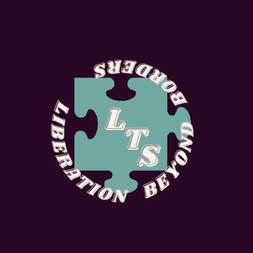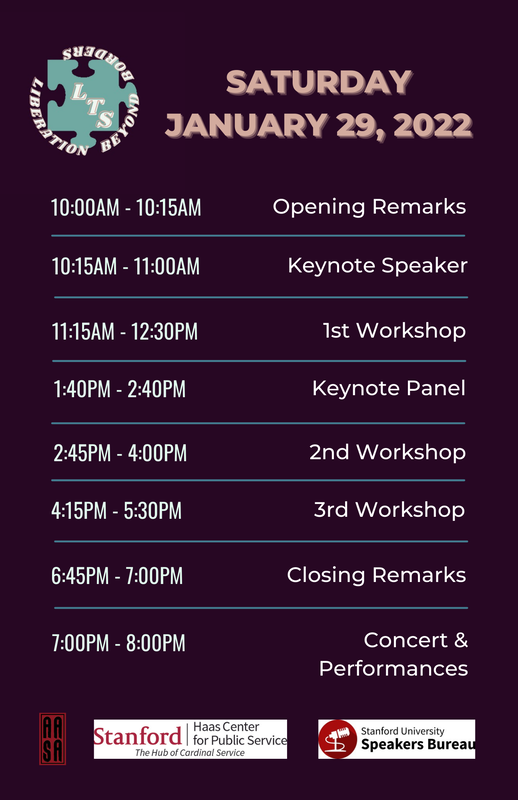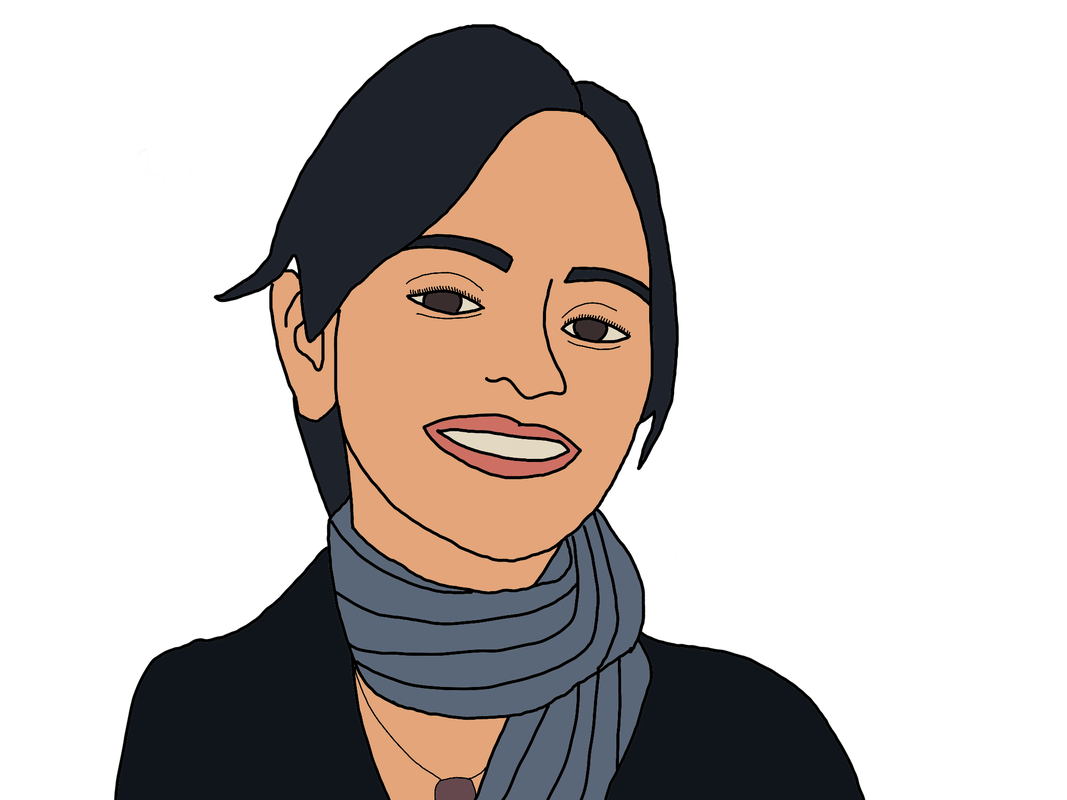WHAT IS LISTEN TO THE SILENCE?

Listen to the Silence is Stanford's annual Asian American issues conference organized by the Asian American Students' Association (AASA). LTS began in 1995 out of the need to increase the visibility of Asian American issues and to educate those in the community and beyond about the conditions of the Asian American community. The conference goals have since expanded to include the empowerment of Asian American students to take direct action to improve their communities and work towards collective liberation. Ultimately, the Listen to the Silence conference aims to provide tangible tools and resources to inspire, educate, and empower participants to work towards creating a more equitable and fair society as part of the broader movement for social justice.
This year, the LTS theme is Liberation Beyond Borders. We want to challenge the borders inherent in “Asian America” — the first one being “America.” Liberation Beyond Borders emphasizes that our struggle for liberation is global, and can only be successful if approached through a transnational framework. Challenging borders also means expanding our traditional definition of “Asian American” to include South, Central, and West Asian perspectives. It means considering Asian Americans’ positionality on unceded land. It means understanding Asian American organizing histories and futures as intimately tied to Black liberation movements. From Palestine to Tibet to the United States, our struggles are interconnected. Liberation can only be accomplished through true, interracial, international solidarity, and we hope that this year’s conference complicates the notion of “Asian American” and pushes us towards this goal.
This year, the LTS theme is Liberation Beyond Borders. We want to challenge the borders inherent in “Asian America” — the first one being “America.” Liberation Beyond Borders emphasizes that our struggle for liberation is global, and can only be successful if approached through a transnational framework. Challenging borders also means expanding our traditional definition of “Asian American” to include South, Central, and West Asian perspectives. It means considering Asian Americans’ positionality on unceded land. It means understanding Asian American organizing histories and futures as intimately tied to Black liberation movements. From Palestine to Tibet to the United States, our struggles are interconnected. Liberation can only be accomplished through true, interracial, international solidarity, and we hope that this year’s conference complicates the notion of “Asian American” and pushes us towards this goal.
REGISTER HERE:
LAND ACKNOWLEDGEMENT
Listen to the Silence takes place on Stanford campus, and we acknowledge that Stanford campus is located on Muwekma Ohlone land. Our institution has a history of marginalizing and stealing from native and indigenous communities. Thus, in addition to this acknowledgement, we encourage you, as well, to learn more and better understand on what native lands you reside. Please check the resource below, which is by no means the only resource you can explore:
KEYNOTE SPEAKER
Lara Kiswani
Lara Kiswani is the Executive Director of Arab Resource & Organizing Center (AROC), serving poor and working class Arabs and Muslims across the San Francisco Bay Area, and organizing to overturn racism, forced migration, and militarism. Lara is from Beit Iksa and Aqir, Palestine, and was born and raised in the San Francisco Bay Area. Lara has been active in movements against racism and war, for Palestinian self-determination, and international solidarity for the last 20 years. Lara is currently a San Francisco Foundation Mission Neighborhood Koshland Fellow, was named a 2021 Yerba Buena Center for the Arts 100 Honoree, and is a faculty member at San Francisco State University in the College of Ethnic Studies.
KEYNOTE PANELISTS
William Gow |
Adrian Bonifacio |
Win-Mon Kyi |
|
William Gow is a San Francisco-based community historian, educator, and documentary filmmaker. A fourth-generation Chinese American and a proud graduate of the San Francisco Unified School District, he holds an M.A. in Asian American Studies from UCLA and a Ph.D. in Ethnic Studies from UC Berkeley. Before receiving his doctorate, he taught history for nearly a decade in California public schools.
While working as a public school teacher, he served for eight years as a volunteer historian and board member at the Chinese Historical Society of Southern California (CHSSC), a non-profit devoted to documenting the history of Chinese Americans in Southern California. At the CHSSC, he founded and directed the Chinatown Remembered Project. This oral history project paired youth interns with community elders to document the history of Los Angeles Chinatown in the 1930s and 1940s. Building on his community work for the CHSSC, Dr. Gow is researching and writing a book about Los Angeles Chinatown and its relationship to Hollywood cinema in the 1930s and 1940s. He currently serves as an assistant professor of Asian American studies at CSU Sacramento. Prior to his current position, he taught for three years as a lecturer at Stanford University. |
Adrian Bonifacio is the national chairperson of Anakbayan-USA, a grassroots organization of Filipino youth fighting for genuine liberation and democracy in the Philippines. He is also a secretariat member of the International League of Peoples' Struggle Youth Commission, a network of anti-imperialist youth organizations in countries across the world.
|
Win Mon Kyi is an organizer and activist based in San Francisco, Bay Area on issues of demilitarization, education and migration. Since 2011 she has organized for relevant and accessible education through launching an offensive campaign against privatization and school closure at City College of San Francisco, which served as a blueprint to colleges nationwide.
Since 2016 she has organized alongside the social movements of El Salvador as a member so CISPES through political, education, and material support alongside the Central American diaspora to share the root causes of migration, and for self-determination for the Salvadoran peoples and true economic and political sovereignty form the United states through campaigns to Stop U.S. Military Funding to El Salvador, and campaigns against the neoliberal projects of the U.S. Win Mon Kyi is part of RESIST US-LED WAR movement which hopes to link organizations to amplify the communities impacted by the military industrial complex around the world and to build a truly international and internationalist movement against US-LED war. Since the Myanmar Spring Revolution she is organizing divestment campaigns i.e. Chevron, pressuring to pass the BURMA Act, and igniting international solidarity to weaken the dictatorship of the Myanmar Armed Forces. |


